Neil DeGrasse Tyson Shows Why Science Can’t Build a Utopia
by Trent Horn
Filed under New Atheists, Science

Atheist astrophysicist Neil deGrasse Tyson recently tweeted, “Earth needs a virtual country: #Rationalia, with a one-line Constitution: All policy shall be based on the weight of evidence.” I did my best in 140 characters to show how this sentiment is the exact of opposite of profound. I said, “@neiltyson ‘Rationalia’ is as useless as ‘Correctistan,’ or a country whose constitution says, 'Always make the correct decisions.'" Obviously, public policy should rationally consider... Read More
Why Richard Dawkins Was Simply Wrong in His “Reason Rally” Speech
by Trent Horn
Filed under New Atheists
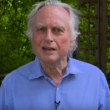
On June 4, a few thousand atheists gathered at the Lincoln Memorial in Washington, D.C., for an event they dubbed the “Reason Rally.” Due to health reasons, Richard Dawkins could not be there in person to address the audience, but he did send a video message, the transcript of which has been passed around via atheist blogs. In it, Dawkins highlights how atheists are mistreated in the U.S., especially when religious people ask them the incredibly insensitive question “What... Read More
How Richard Dawkins Helps Prove Biblical Inspiration
by Joe Heschmeyer
Filed under New Atheists, The Bible
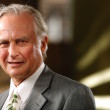
American Atheists responded to the Pennsylvania state legislature’s designation of 2012 as “Year of the Bible” with mocking billboards, and a press release insisting that “the House of Representatives should not be celebrating a barbaric and Bronze Age book.” It’s a common argument against the Bible, that it can’t be trusted because it’s a book from the Bronze Age. Over on Twitter, Richard Dawkins extended this argument to attack both the Bible and the Qu’ran. Bible... Read More
An Agnostic’s Assessment Of New Atheist Attitudes
by Matt Nelson
Filed under New Atheists
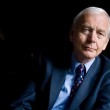
Richard Dawkins, Sam Harris, Daniel Dennett and the late Christopher Hitchens—these are the posterboys for what some have called the “New Atheists”. What’s new about the New Atheists? In his book, Gunning For God, Oxford mathematician John Lennox says it’s their tone and emphasis. The tone of today’s New Atheists is one of intensity and aggression. They are not out to merely inform. They are out to convert—to de-vangelize. In the The God Delusion, Dawkins admits: “If this... Read More
An Atheist in Church? Why Christians Should Listen to Their Atheist Neighbors
by Dr. Randal Rauser
Filed under Atheism, New Atheists, The Church
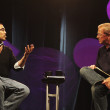
A few years ago I was preparing to debate an atheist on the existence of God at my home church. One lady came up to me, curious about the posters she was seeing advertising the event, and asked about the individual I was debating. “He’s an atheist,” I explained. Immediately her expression tightened and a look of confusion came over her as if to say, “Why would you talk to an atheist?” Forming opinions about the atheist community To be honest, it’s not an unusual reaction.... Read More
The Dogmas and Failure of Rational Atheism
by Carl Olson
Filed under New Atheists
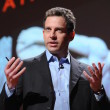
I was recently re-reading sections of what I think is one of the best and yet most under-appreciated Catholic books written in recent decades, Faith and Certitude by Father Thomas Dubay. Fr. Dubay's book is, as the title suggests, especially concerned with skepticism and unbelief, and is an excellent examination of the intellectual premises and varied attitudes held by atheists. In a chapter titled, "Clarifying Our Concepts," Fr. Dubay writes: "Everyone is dogmatic. The statement may startle,... Read More
The 6 Varieties of Atheism (and Which Are Most Defensible)
by Dr. Edward Feser
Filed under Atheism, New Atheists
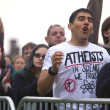
A religion typically has both practical and theoretical aspects. The former concern its moral teachings and rituals, the latter its metaphysical commitments and the way in which its practical teachings are systematically articulated. An atheist will naturally reject not only the theoretical aspects, but also the practical ones, at least to the extent that they presuppose the theoretical aspects. But different atheists will take different attitudes to each of the two aspects, ranging... Read More
Does Religion Really Have a “Smart-People Problem”?
by Bishop Robert Barron
Filed under New Atheists, Religion

Daniel Dennett, one of the “four horsemen” of contemporary atheism, proposed in 2003 that those who espouse a naturalist, atheist worldview should call themselves “the brights,” thereby distinguishing themselves rather clearly from the dim benighted masses who hold on to supernaturalist convictions. In the wake of Dennett’s suggestion, many atheists have brought forward what they take to be ample evidence that the smartest people in our society do indeed subscribe to anti-theist... Read More
Why Believe?
by Carl Olson
Filed under Belief, Faith, New Atheists
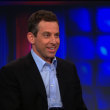
"Faith is always at a disadvantage; it is a perpetually defeated thing which survives all of its conquerors," wrote G. K. Chesterton. Faith is the Christian word. Avery Cardinal Dulles, S.J., in his masterful theology of faith, The Assurance of Things Hoped For, writes, "More than any other religion, Christianity deserves to be called a faith". He points out that in the New Testament the Greek words for "faith" and "belief" occur nearly 500 times, compared to less than 100 for "hope" and... Read More
The Dying of the Brights
by Matthew Becklo
Filed under New Atheists
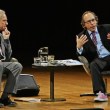
“We have to make this planet as good as we possibly can and try to leave it a better place than we found it.” The crowd, gathered to hear Richard Dawkins debate the Archbishop of Sydney, Cardinal George Pell, responds to the trite apothegm with unsurprising applause. But off-stage, after the cameras are turned off, the proverbial devil of the details rears his ugly head. A weary Dawkins—one almost gets the sense that he’d rather not talk to anybody at all—kneels besides... Read More






